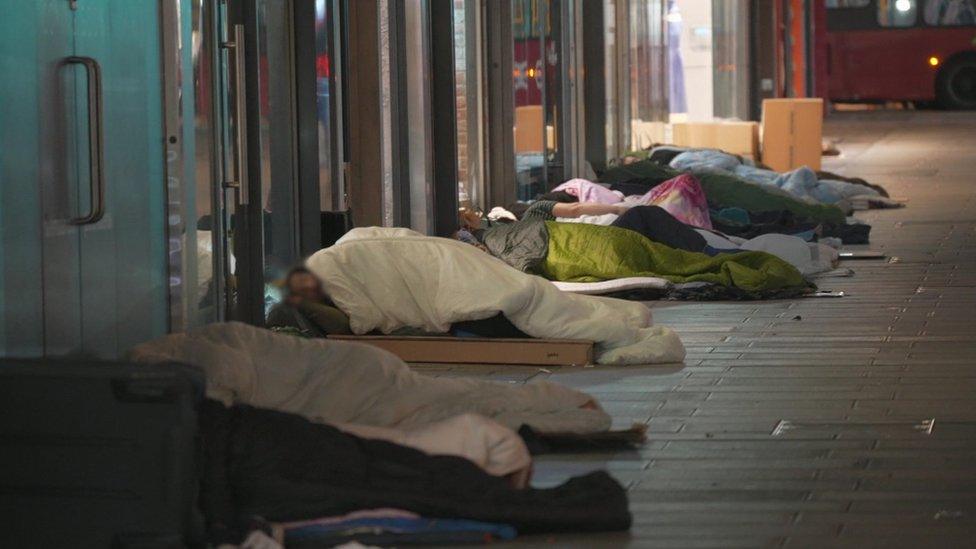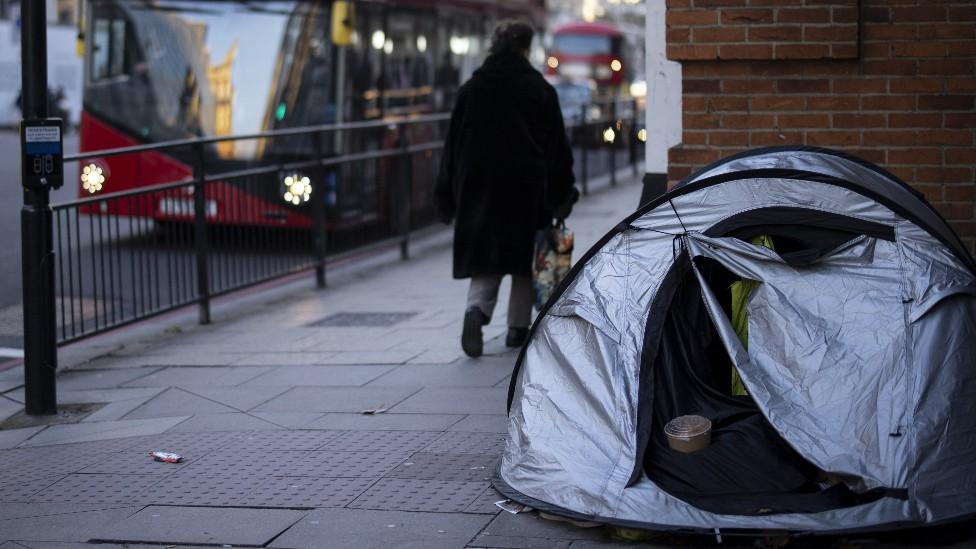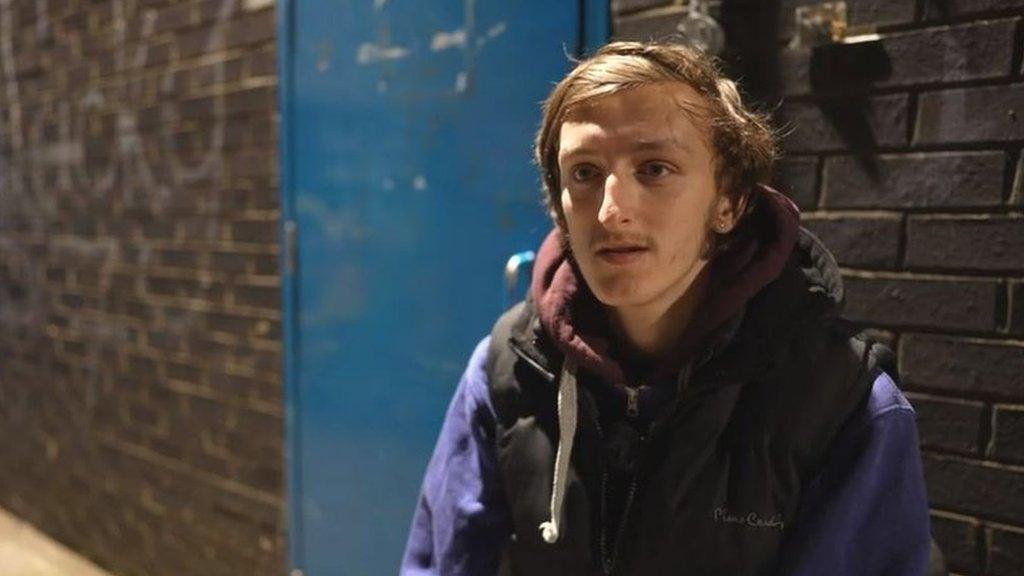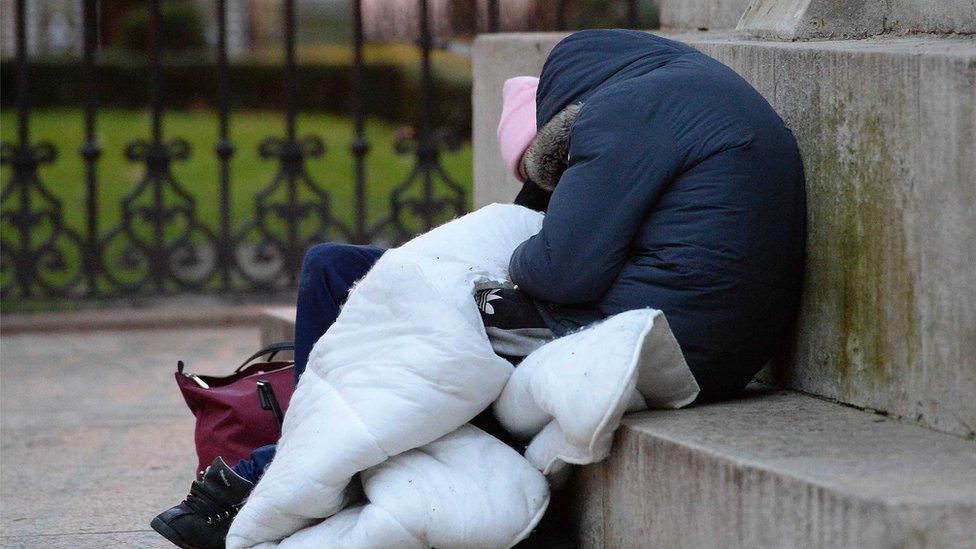London rough sleeper numbers at highest seen in count
- Published

More than 4,000 people have been recorded on the streets by outreach teams since July
The highest quarterly number of rough sleepers has been counted in London since records began in 2010.
Between July and September, 4,068 people were found to be sleeping on the streets by outreach teams.
It is 12% up on the same period in 2022 with more than half - 2,086 people - sleeping rough for the first time.
Cross-party group London Councils has warned that one in seven of the city's renters are currently reliant on housing allowance to meet their costs.
According to analysis it commissioned, almost 60,000 London renters could be pushed into homelessness by 2030. This would equate to an additional 16,500 to 22,000 households, if local housing allowance is not raised.
The 22,000 households figure equates to 58,740 people, including 28,000 children, the analysis by Alma Economics found.
The capital's boroughs have warned they are set to overspend their homelessness budgets by £90m this year. London accounts for more than half (57%) of England's total number of homeless households in temporary accommodation.
Local housing allowance (LHA) is paid out to people on low incomes, either in the form of housing benefit or as the housing element of Universal Credit - but rates have been frozen since 2020, with the figure based on the 30th percentile of rents in September 2019.
The payments are not intended to cover all rents in all areas, but rather to provide help towards covering some housing costs.
As housing costs have sharply risen over recent years, however, the frozen level of support has become increasingly inadequate, London Councils said.
Darren Rodwell, London Councils' executive member for housing, said: "London's homelessness pressures are already enormous and unsustainable.
"Just as the government boosted LHA during the pandemic to prevent a wave of mass homelessness, we need a similar emergency response to the situation today."
A spokesman for the government did not directly respond to London Councils' request for LHA rates to be unfrozen, but did say that they were easing the pressure of rising rents by investing over £30bn in housing support this year.
"We've also maintained our £1bn boost to Local Housing Allowance while our Discretionary Housing Payments (DHPs) provide a safety net for anyone struggling," they said.
The £1bn boost mentioned by the spokesman refers to the last time LHA was increased, in 2020.
DHPs are an additional form of support people can apply for, but London Councils has warned that London's allocation of DHP money "has historically not been sufficient to meet demand in the capital".
Clarification 16 May 2025: This article has been updated to include that the records checked began in 2010.

Listen to the best of BBC Radio London on Sounds and follow BBC London on Facebook, external, X, external and Instagram, external. Send your story ideas to hello.bbclondon@bbc.co.uk, external
Related topics
- Published28 February 2023

- Published28 February 2023

- Published27 June 2023
